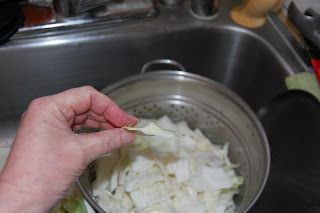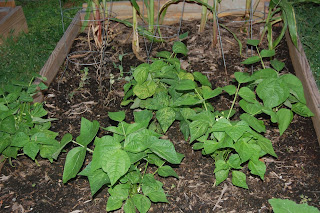If you have practiced a skill; you won't be learning all the steps while you are in an emergency situation or when your life depends on it. ~Perky Prepping Gramma~
We started the journey last year. The process began with buying "stuff" from the store, learning to dehydrate fresh food from the store.
Figuring out how to pressure can my own meat. Learning to practice my skills. Which lead to growing an heirloom garden.
Each step has involved a learning curve. That is what I am going to talk about today.
When we first started preparing, we understood the importance of being self-sustaining in food production. We purchased a shelf stable can of seeds. Over the winter we decided to start a garden this year.
I knew from the beginning I was going to keep it simple the first year:
1. Using the raised planter system (our ground is red clay), ala square foot garden and "Back to Eden" methods. No chemicals. All heirloom, non-GMO seeds.
2. Grow what we like to eat
3. Not grow too many things (since I was learning about each plant I was growing)
4. I expected some failures, which is simply a learning process for the next time.
5. Hoping that I would be able to eat some food from my garden & even possibly be able to can fresh "good" food.
I have learned a lot & I am grateful that we didn't wait to start a garden in a SHTF scenario. If we had waited to start our garden, we would have not been in great shape & still would have been dependent upon what we already have stored.
1. Using the square foot garden & "Back to Eden" process worked really well for us. This is how we will continue to garden.
2. Looking back at that can of seeds we have stored, makes me realize that we need to store more (seeds) of what we eat. This is another basic principle that needs repeating.Store (grow) what you eat. There are several vegetables in "the can" we don't like to eat, so why bother trying to grow them or even have them stored. Soon, I will need to learn how to save the seeds.
3. We planted asparagus, tomatoes, watermelon, cantaloupe, corn, snap peas, sweet peas, green beans, yellow squash & carrots.
4. The things that didn't work for various reasons are the tomatoes, both peas, carrots & maybe the cantaloupe.
5. We have eaten corn, squash & green beans. We will have multiple watermelons soon.
Ta! Da! I even got enough of a harvest to pressure can a small batch of greens beans yesterday.
There will still be more, but I am pretty tickled so far.
Special Note for Newbies: Are there things you still need to learn? Are you willing to step out and give it a try? There are many posts here on the blog to help you & back on Perky Prepping Gramma Facebook page itself; there are a lot of photo albums for various things like canning, dehydrating, storage and more. If you have questions, read through and then post question on the front page of the facebook page. We are here to help you on your journey.

























